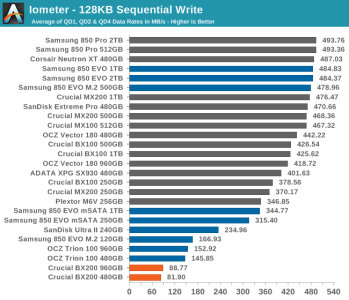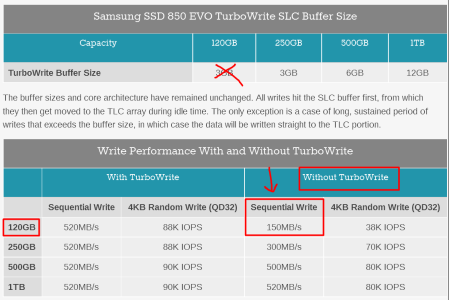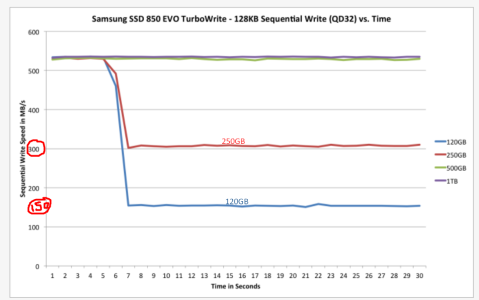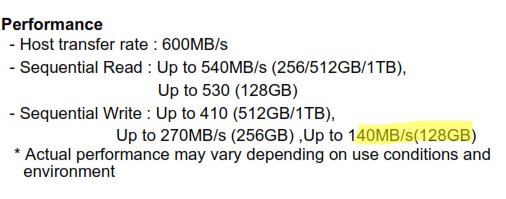Chuck Foltz
New member
- Jan 22, 2015
- 76
- 0
- 0
I noticed the same thing with my 512 SSD. By chance do you have Bit Locker enabled? When you choose I own my surface and login with a MS account it will by default enable bit locker.
I wonder if they chose this drive for low power consumption? They obviously did not choose it for performance, so either they went cheap for the price, or they chose it based on some other metric, like power consumption.

I noticed the same thing with my 512 SSD. By chance do you have Bit Locker enabled? When you choose I own my surface and login with a MS account it will by default enable bit locker.
That's a great point. I was surprised why so many people had turned it on (I thought it was more of an enterprise feature), but the Microsoft account bit seems to be the "culprit".
Bitlocker is an important variable, but from the benches I've seen, it mostly affects 4K speeds and not so much sequential speeds.
Before Windows 8.1 automatically enables Device Encryption, the following must be true:
- The Windows device ?must support connected standby and meet the Windows Hardware Certification Kit (HCK) requirements for TPM and SecureBoot on ConnectedStandby systems.? Older Windows PCs won?t support this feature, while new Windows 8.1 devices you pick up will have this feature enabled by default.
- When Windows 8.1 installs cleanly and the computer is prepared, device encryption is ?initialized? on the system drive and other internal drives. Windows uses a clear key at this point, which is removed later when the recovery key is successfully backed up.
- The PC?s user must log in with a Microsoft account with administrator privileges or join the PC to a domain. If a Microsoft account is used, a recovery key will be backed up to Microsoft?s servers and encryption will be enabled. If a domain account is used, a recovery key will be backed up to Active Directory Domain Services and encryption will be enabled.
Are you saying that logging in with a Microsoft account enables bitlocker?
I'm using a local account right now and it's off.
When I sign in with my ms account, I don't want it on...
Bitlocker IS more geared towards enterprise users...
Well. To each their ownWhy do you say that? You think everyone doesn't have important personal information on their computers? Anyone with a super thin and light device like a Surface Pro is more susceptible to it being stolen. I'd sure sleep better at night knowing that if my SP3 or SP4 fell into the wrong hands, all my email, contacts and stored website passwords were safe from prying eyes and hands!
Well. To each their own
Mine was done with bit locker off. This was before I logged into my sp4 with my microsoft account.
Mine was done with bit locker off. This was before I logged into my sp4 with my microsoft account.
Legit question: Build 10240 or Insider build 10586? I'm on the latter and as today demonstrated, there are some enhancements with TH2.





Quick question, Daniel. On your Toshiba XG3, would you remind running a quick AS-SSD test? The download link is at the very bottom.
I'm curious on the write speeds.

